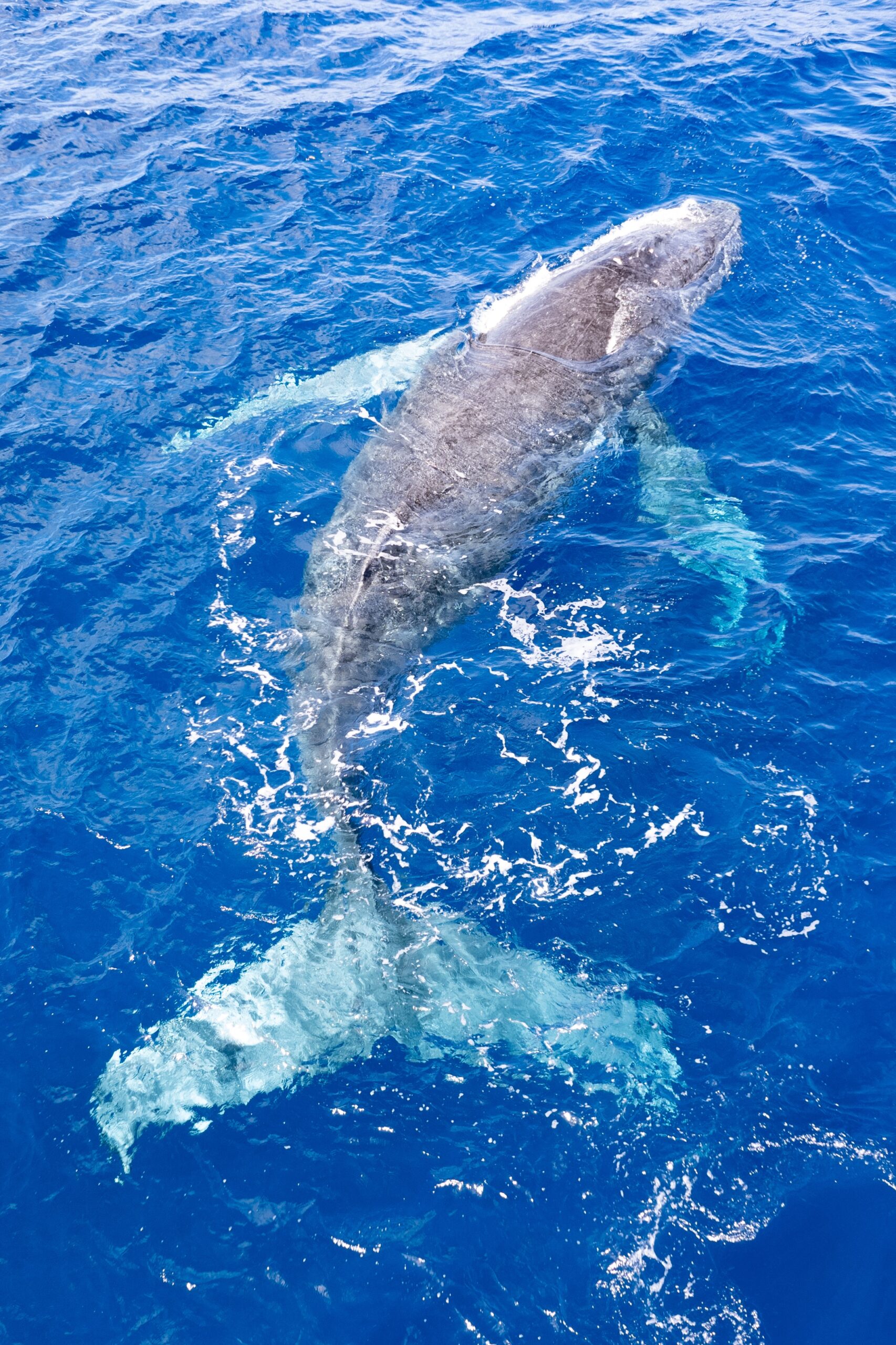OPINION: Everything whale be alright
Saturday 20 August 2022 | Written by Te Ipukarea Society | Published in Editorials, Opinion

Humpback whale gracing the shores of the Cook Islands. Photo: Kirby Morejohn/22081901
The death of a baby whale in Aitutaki lagoon this week, despite the concerted efforts of locals to save it, reminds us all of just how vulnerable these gentle giants are.
Whale watching in the Cook Islands is a thrill treasured by visitors who are lucky enough to witness it. The whale season in the Cook Islands starts in July and goes through to October during our winter season. It is a thrilling experience to sight humpback whales that reach our shores each year, especially after their long journeys from overseas. They can travel several thousand kilometres during their migrations and have been recorded to travel over 8000 kilometres in 110 days.
Humpback whales are commonly spotted around the island, in particular outside Avarua Harbour, Blackrock, and Aroa Beach, enjoying a pit stop in paradise. These beautiful gentle giants can be sighted breaching with their thunderous splashes and aerial performances along the shores of Rarotonga. They are generally found to migrate into the South Pacific waters from their summer feeding grounds of Australia and New Zealand.
Over the last couple of months, tourism has increased in the Cook Islands which has brought a lot of business to companies who share the joy of being out on the ocean with their customers. Whether you are fishing, scuba diving or cruising on the boat with the family, the urge to have a closer look at these animals has crossed many minds. Unlike some other Pacific countries, the Cook Islands have no laws or regulations in place to protect our whale guests while they are here and it is important that we ensure the safety of these whales so that they continue to return to the Cook Islands for the future generations.
Kaikoura, located on the east coast of the South Island, is the whale watching capital of New Zealand. Renowned for its amazing marine life, Kaikoura has created rules and regulations which govern how people interact with marine mammals, including safe following distances, providing safe passage and restrictions on noise and speed that must be followed by whale-watching and fishing companies. These rules and regulations are put in place to make sure that the marine mammals of New Zealand are protected and that their conservation is of top priority.
According to the Department of Conservation, regulations are necessary to ensure whales are protected and to prevent whales from being disturbed by whale watching and fishing vessels. New Zealand’s Marine Mammal Protection Regulations of 1992 are recognised as a leading example around the world in this area of conservation.
During the winter season from December to April, the island of Maui, in Hawaii, also welcomes its seasonal humpback visitors. This is another destination well known for its whale sightings. Aside from escaping the cold to bask in the warmth of the Hawaiian waters, humpbacks migrate to Hawaii to breed and give birth to their calves. The Division of Aquatic Resources in Hawaii states: “No one may approach within 90 metres of a humpback whale in Hawaiian waters” which helps to keep humpback whales safe and avoid any excessive disturbance.
Whale watching and fishing are ongoing industries that continue to expand with opportunities for education, furthering our scientific knowledge, and bringing joy to visitors who are seeking a thrilling experience. However, while it is great seeing the whales, we need to ensure we are good hosts by respecting our migratory visitors.
The death of a baby whale in Aitutaki lagoon this week, despite the concerted efforts of locals to save it, reminds us all of just how vulnerable these gentle giants are. Perhaps it is time to consider following the examples of some other Pacific countries to ensure the safety and protection of our guests.














































